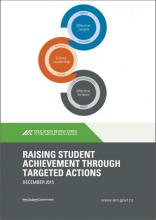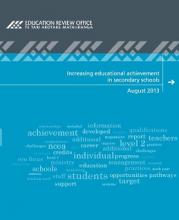Raising student achievement through targeted actions
In 2015, ERO investigated target setting in both primary and secondary schools. We focused on the extent to which targeted actions of schools supported accelerated progress for students at risk of not achieving.












